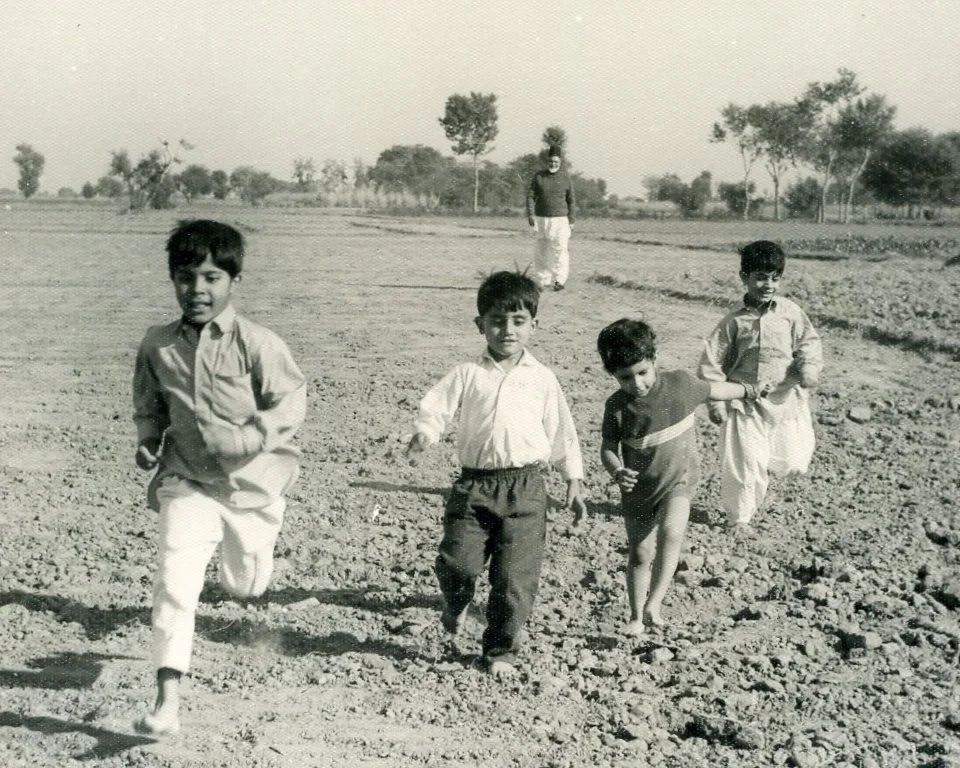My father talks about growing up in the Punjab in the 1940s. The memories, which still delight him at 88-years old, feature a gaggle of early- mid- late- teen boys wandering around, engaging in risky or unsanctioned behavior, and heading for home at the first appearance of trouble. The stories are familiar. Narratively speaking, they are coming of age stories. The only difference being that the events he recollects take place in far-off, dusty, wide-open, rural places. Oh, and there is a notable absence of women. It is not just that there is no reference to a girl who was a peer, friend, or flirtation, because, given the culture and time, that would be surprising. But in any sense. My father had a mother and a stepmother and sisters. Yet, there is simply no reference to women. It is a blank space.
I ask, “What were your sisters doing while you were gallivanting?” “Where did your mother get groceries and food to cook?” “Who helped her?” “What did your mother do all day?” “Who was taking care of the little ones?” My father, an intellectual, a lawyer, and the man who raised me, his only daughter, to believe that I had no limits, says, almost quizzically, “I have no idea.”
In literature and in real life, I am drawn to the lives of women, the dynamics in which they operate, and what they are capable of when society presses in. Women go about their daily business of bearing and raising children, earning, nurturing, organizing, and supporting others while remaining mostly unseen. Within family units, they may or may not be celebrated as the heroes of their family, beloved in their own right. But writ large, they have not been written into history.
And yet, who we are is a function of home. Each person on this planet is who they are because of who they were raised by and with, and what was happening in their environment. I cannot help but wonder who is cooking the meals and how that reflects on the power structure within the home. What is the inflection of a mother’s voice and how does it affect those around her? Is she a willing or unwilling participant in the system into which she was born? How does she react when a brother sticks his foot out to trip a sister? What does she allow herself to dream of once the daily responsibilities of taking care of others is complete?
These are the questions that fuel my curiosity and my stories. While history concerns itself with the memorialization and celebration of the achievement of men, I am more interested in the inner lives of women, within their families and the larger cultures in which they live.
I write about extraordinary people living ordinary lives. I write about the unseen lives of women.
I write to fill in the blank space.
